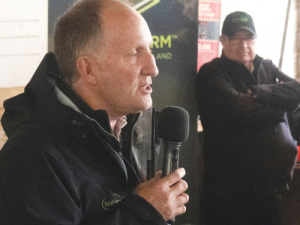Real pragmatism is needed in Europe to sort out the trade issues on Brexit, says Beef + Lamb NZ chair Andrew Morrison.
Just home from his annual visit to Europe, he says this fortuitously coincided with the apparent agreement on Brexit between the EU and UK negotiators.
However doubt remains on whether the deal will win the support of UK politicians.
Morrison told Rural News, from London, that his key message in talks with officials, farming leaders and commercial entities is the need for rules-based free trade, and that any move to break away from this concept will be strongly opposed by NZ.
“If you compromise on this issue it doesn’t leave anyone in a good position for any future trade deals,” he says.
Morrison talked with the Ulster Farmers Union which told him that if the UK left the EU without a deal it would be disastrous. He got the same message from French and Republic of Ireland (Eire) farmers: they all want a deal that supports the free flow of trade.
“Pragmatism has to prevail because if there is a hard border between Northern Ireland and [Eire] there will be problems,” he said.
“A lot of the lambs are grown in the north, but processed in the south. These are purely commercial issues and a lot of the people we have met – from cooperatives and sheep and beef processors – want certainty about their investment and the ability to put their products in markets as they currently do.”
Meanwhile, the issue of tariff rate quotas (TRQs) for sheepmeat to the EU is high on the agenda for NZ, with a proposal by the UK and EU to arbitrarily split this 50/50 when Brexit takes effect.
NZ opposes this move because it would take away the current flexibility to sell NZ’s 228,000 tonnes of sheepmeat where there is greatest demand.
But Morrison says the real objective is to get more lamb onto the shelves of supermarkets and grow total sales of this product.
“I think TRQs have been misunderstood in that they are being used as a bit of a political football, whereas the goal is to ensure we supply lamb into these markets when they need it.”
Morrison says lamb was in short supply in the EU and UK this past Easter. The point is not so much about NZ filling its quota but about it maximising the value from its sales to these markets.
Not all about trade
Although Brexit and trade are high on European farmers’ agenda other issues are also worrying them.
These include climate change, the environment, water quality and biodiversity – heard for the first time since he began his annual visits there.
“They are also talking about the threat from alternative proteins.”
Morrison pointedly told the EU farmers that he was not there to put pressure on anyone, but rather to prompt quality dialogue between farmers in the southern and northern hemispheres.



















